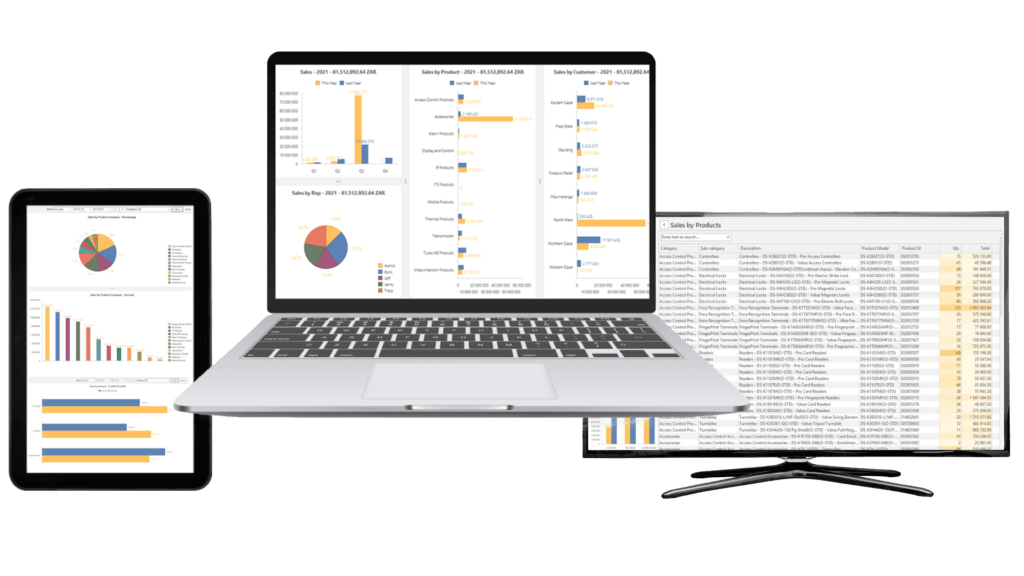From Prospect to Profit – Why Sales, CRM, and Service Desk Software Matters

Why Sales, CRM, and Service Desk Management Matters
In the competitive economy of manufacturing and printing in South Africa, process optimisation in sales, CRM, and service desk management is more crucial than ever. Even more so with the recent uptick in manufacturing production by 1.9% year-on-year in November 2023, which particularly highlights an 8% surge in the production of wood, wood products, paper, publishing, and printing. This underscores a welcome era of growth and opportunity in the country. This trend is further reinforced by a notable 5.7% increase in the production of motor vehicles, parts, accessories, and other transport equipment, which paints a promising picture for local industrial activity.
For this reason, the integration of sales, CRM, and service desk software is not just beneficial but essential for manufacturers who need to streamline their operations, enhance customer relations, and maximise sales opportunities.
An Explanation of Sales Software, CRM, and Service Desk Software, With Examples
Sales software, Customer Relationship Management (CRM) systems, and service desk software stand out for their distinct roles, goals, and benefits. It is important to understand these differences and recognise the need for each. This will empower you to make informed decisions about your business software and help you drive sales, profitability, and customer satisfaction this year.
Sales Software: The Engine for Revenue Generation
Sales software serves as the backbone for any business’s revenue-generating activities. It’s designed to automate and streamline the sales process, from lead management to closing deals. By providing tools for tracking sales opportunities, forecasting, and performance analysis, sales software enables sales teams to focus on what they do best: selling.
Here are examples of stand-alone sales solutions.
While stand-alone solutions are not ideal, as they only have a single-view of your sales without the wider context of your entire business, they serve at offering this one thing.
- Salesforce Sales Cloud: A powerful sales automation tool that offers advanced analytics, lead management, and mobile sales capabilities.
- HubSpot Sales Hub: Known for its ease of use and integration with HubSpot’s marketing platform, providing a seamless transition from lead to customer.
CRM Software: Where You Build and Nurture Customer Relationships

CRM software is the next step in the customer life cycle after sales. It offers a comprehensive platform for your team to manage all customer interactions across sales, marketing, and customer service. It helps businesses understand their customers’ needs and preferences, and supports personalised interactions that build long-term relationships.
If you use spreadsheets or paper to manage your customer relations, then these stand-alone solutions might help:
- Zoho CRM: Provides a wide array of features to manage customer relations, with customisation options to fit various business needs.
- Monday CRM: Offers much the same as Zoho, but with the added bonus of no-code customisation.
Service Desk Software: For Ongoing Customer Satisfaction and Support
Service desk software is critical for managing customer inquiries, issues, and support tickets. This is the tool your receptionist should use, as well as your customer service and support desk. It’s designed to help businesses provide timely and effective solutions to customer problems to enhance satisfaction and loyalty.
If you use spreadsheets, then you might consider these stand-alone solutions:
- Zendesk: A popular service desk solution known for its user-friendly interface and powerful ticketing system.
- Freshdesk: Offers a comprehensive suite of customer support tools, including omnichannel support and automation capabilities.
Key Differences Between Sales, CRM, and Service Desk Software
Essentially, while the lines may blur between sales and CRM, the main differences lie in who is using the software, and what their goal or purpose is in the business.

- Users: Sales software is mainly used by sales teams, CRM is used across multiple departments (sales, marketing, customer service), and service desk software is used by support teams and IT departments.
- Objective: The primary objective of sales software is to increase sales efficiency and effectiveness, CRM aims to enhance all aspects of customer interaction and relationship management, and service desk software aims to improve support services and issue resolution.
While we have highlighted each platform and solution on its own, all of these stand alone solutions are just that – they are isolated from the rest of your business data, and stand on their own. This means, there is a risk of outdated information, disparate data, and fragmented insights. There is a better way.
Why Choose? Get It All with QuickEasy BOS ERP
While each of these software solutions offers distinct advantages, the challenge for many businesses, particularly in the manufacturing and printing sectors, lies in integrating these disparate systems to provide a seamless operational flow and a unified view of the customer. This is where QuickEasy Manufacturing ERP stands out.
QuickEasy BOS ERP is not just an Enterprise Resource Planning system; it is the most comprehensive ERP solution you will find on the market today.
Built to streamline operations, it encompasses the full functionalities of sales software, CRM, and service desk software, all within a single platform, along with manufacturing, inventory management, accounting, delivery, reports, and more.
Cradle to grave visibility: Why you need ERP with sales, CRM, and service desk functionality built in

Why is that important? The fully-integrated nature of QuickEasy Manufacturing ERP means that you can track a customer’s complete and entire history, data, transactions, queries, support, and account from cradle to grave, without the need for multiple, disconnected systems.
With sales, CRM, and service desk functionalities integrated into one platform, manufacturers and printing companies can enjoy the benefits of:
- Unified Customer Data: Having all customer information in one place, from initial contact through sales, ongoing support, and service, enabling personalised and consistent customer interactions.
- Streamlined Operations: Eliminating the need for multiple software solutions and the challenges of integration, leading to more efficient operations and reduced IT complexity.
- Enhanced Collaboration: Facilitating better communication and collaboration between sales, customer service, and support teams, ensuring that everyone is on the same page.
Get Sales, CRM, and Service Desk Functionality in One Unified System Today!
In conclusion, while sales software, CRM, and service desk software each play a critical role in modern business operations, the integrated approach offered by QuickEasy BOS ERP provides a compelling proposition for manufacturers and printing companies who want to optimise their sales processes, build and maintain strong customer relationships, and deliver exceptional customer support this year. QuickEasy BOS ERP not only streamlines operations and reduces your IT maintenance burden, but also empowers businesses to focus on growth, innovation, and delivering value to their customers.

